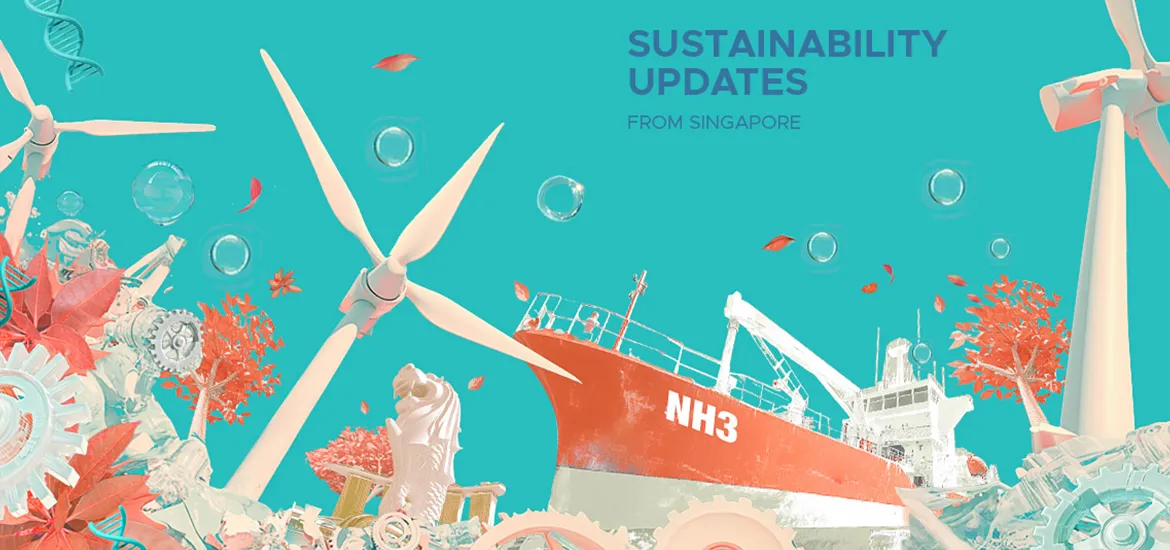1. Singapore expands agreements and investments in the global carbon market, including two new carbon credit transfer agreements
Singapore, the UK, and Kenya have launched the Coalition to Grow Carbon Markets – the first government-led alliance to boost confidence in voluntary carbon credits.
Unveiled during London Climate Action Week, the coalition aims to raise standards in the voluntary market, which has faced scepticism over integrity and pricing, and give businesses clearer guidance on using credits responsibly. Co-chaired by Singapore’s Ambassador for Climate Action Ravi Menon, the group will publish shared principles at COP30 to guide corporate use of high-quality credits.
Singapore also signed its eighth and ninth carbon credit transfer agreements with Thailand and Vietnam, respectively. The agreement will enable cross-border carbon mitigation projects under Article 6 of the Paris Agreement. With Vietnam, Singapore additionally committed five per cent of carbon credit proceeds to Vietnam’s climate adaptation, promoting sustainable development and job creation.
Meanwhile, Singapore is turning its efforts and investment toward habitat preservation. For the first time, Singapore will purchase S$76.4 million worth of nature-based carbon credits from projects in Ghana, Peru, and Paraguay. The credits, equivalent to offsetting nearly 4 per cent of Singapore’s 2022 greenhouse gas emissions, will contribute towards meeting the country’s 2030 climate targets. Three firms won the bid, including Temasek-backed GenZero. The projects involve protecting Peruvian forests from deforestation, restoring Ghana’s tropical forest landscape, and implementing sustainable grassland management in Paraguay to increase the amount of carbon that can be stored.
2. Launch of Blue Catalyst initiative – an innovation challenge to generate high-quality blue carbon credits
Launched at New York Climate Week, Blue Catalyst is the first-of-its-kind open innovation challenge dedicated to advancing tech solutions for blue carbon projects. The initiative, by World Wide Fund for Nature (WWF) Singapore and Hatch Blue, is supported by the Singapore Economic Development Board (EDB) and aims to boost protection and restoration of marine and coastal habitats in Southeast Asia to generate high-quality blue carbon credits.
The initiative features a 12-month programme where early-stage companies will have the opportunity to test their cutting-edge technologies in actual conservation sites around Southeast Asia. They will also receive guidance from WWF specialists on blue carbon science and carbon markets. Companies can register their interest here.
3. Climate financing sees a boost this quarter, with the funding secured for FAST-P and a surge in sustainable bond issuances
Singapore’s Financing Asia’s Transition Partnership (FAST-P) has secured US$510 million (S$655 million) to fund renewable energy, transport, and water projects in South and Southeast Asia. The funds come from global and regional public, private, and philanthropic institutions such as Temasek, HSBC, and the Australian and European governments. FAST-P aims to mobilise up to US$5 billion to finance Asia’s green transition. Initial investments include solar projects with battery storage and bioenergy plants turning agricultural waste into power, expected to cut 350,000 tonnes of emissions annually.
Singapore’s green, social, sustainability, and transition bond issuances rose nearly 80 per cent in 2024 to S$13.3 billion, according to the Monetary Authority of Singapore (MAS). Together with sustainability-linked loans, Singapore now accounts for over half of ASEAN’s sustainable debt market. MAS highlighted that Southeast Asia requires more than S$1 trillion in financing over the next decade to support renewable energy, grid upgrades, and battery storage.
Beyond bond markets, MAS is shifting parts of its Climate Transition Programme from passive to active equity management and tilting corporate bond holdings towards lower-carbon exposures. These moves aim to enhance financial resilience while aligning portfolios with long-term climate goals, reinforcing Singapore’s role as a sustainable finance hub.
4. Singapore deepens research in emerging energy options – nuclear, hydrogen, and geothermal energy
Engineering consultancy Mott MacDonald has been appointed to assess the safety, maturity, and commercial feasibility of advanced nuclear technologies, including small modular reactors, for Singapore. No deployment decision has been made, but capability building is accelerating: the new Singapore Nuclear Research and Safety Institute aims to train 100 experts by 2030, and Singapore has renewed training cooperation with the International Atomic Energy Agency.
In parallel, the government is advancing R&D in hydrogen, geothermal, and carbon capture —reflecting a pragmatic approach to long-term energy security and decarbonisation while public education and safety remain paramount.







